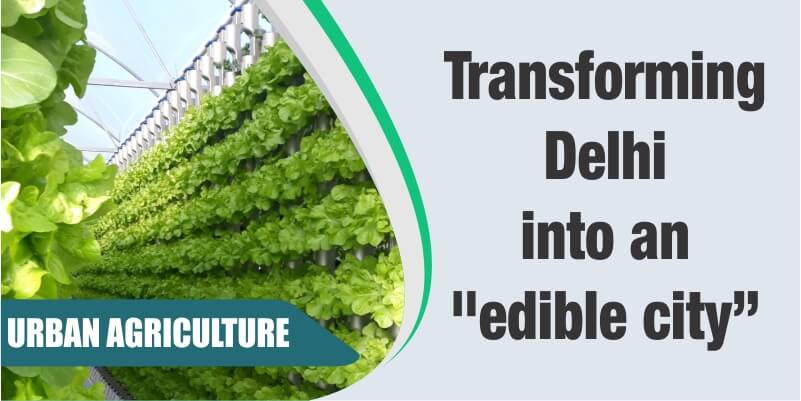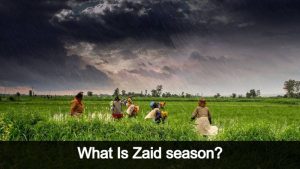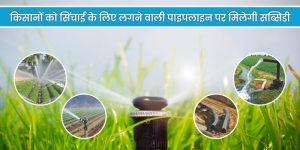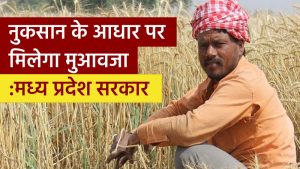A large portion of urban farming in Delhi is either a way of securing a living or an independent source of organic veggies.
KhetiGaadi always provides right tractor information
Numerous issues that cities are currently facing can be resolved through urban agriculture. However, it has a variety of characteristics in Delhi, which has distinct effects on various social groups.
In the nation’s capital, urban farming predominately occurs on the opposing ends of a continuum. It serves as a means of support for the economically disadvantaged or a way for the wealthy to self-supply organic vegetables.
We look at a few suggestions to make urban agriculture a practice that is open to everyone in order to make Delhi an “edible city” while enhancing the urban environment.
Farming methods on the Yamuna floodplain
Since agriculture was not recognised in Delhi, cultivation on the floodplain has historically been seen as an inconvenience.
Farmers working in the Yamuna floodplain are unnoticed and exposed. They must pay rent because they do not own the lands. They are considered encroachers and constantly worry about being forced to leave by the government.
Their entire lands are flooded by heavy rains or the discharge of water from barrages, which reduces production. They hardly ever benefit from government policies for metropolitan areas because they are largely invisible.
According to a report by the People’s Resource Center in 2022, there is now no support structure for farmers’ welfare and agricultural activity. People’s Resource Center is a venue for developing viewpoints and alternatives as well as local resources for social reform.
The necessity for policies to assist urban agriculture has been prompted by the climatic and ecological crisis.
The Master Plan for Delhi-2041 recognises the existence of agriculture on the Yamuna floodplain. Plans are provided for the Yamuna River and its floodplain, as well as other green-blue assets in Delhi’s Zone O.
Farmers would be recognised to be able to obtain licences, access and own lands, access to consumers, and better management of natural and social resources if regulations were implemented properly.
Their children shouldn’t have to miss school to fill the labour gap, hence the financial barriers to recruiting foreign labour must be removed. By forming farmer organisations, they may voice their concerns to higher-ups and receive rewards.
The government should comprehend the issues facing the farmers in floodplains and take their concerns into consideration when making decisions rather than using a top-down approach. Cleaning up the dirty Yamuna is also essential for farming to be done without concern in its floodplain.
Instead of only retaining it as a place for recreation, other plans use the space surrounding the river for urban agriculture. It also engages local populations in understanding the value of a connection between river and people, a clean environment, the disposal of untreated sewage and trash, and the construction of housing that is flood-resistant.
According to Delhi Development Authority, 2021, the master plan is also raising public awareness of the Yamuna River and its floodplain to start the ecosystem’s restoration.
Food production that is integrated into commercial structures:
Commercial buildings can only currently include attractive plants in their landscaping. Such places can also be used for food production to create an “edible city.”
Even though rooftops are typically considered to be private areas, there are several examples of community gardens being established on top of commercial buildings in India.
Self-help organisations could use government and privately owned buildings’ rooftops for farming, utilising otherwise unutilized space. Additionally, it will promote socioeconomic advancement and enhance urban ecology.
In order to build up these community gardening practices, renting out public and private roof areas requires the development of appropriate government regulations.
Institutional changes are necessary:
The key to making urban agriculture in Delhi a practice that is accessible and inexpensive is institutional transformation.
Urban agriculture serves social, ecological, and economic functions, and its versatility must be acknowledged. It will assist in creating an edible city by integrating such agriculture into the urban landscape.
A yearly budget, improved agricultural extension services, and active participation of diverse stakeholders in community-based, decentralized urban agriculture techniques should all be provided support for urban agriculture.
For tractor and agricultural-related information visit the KhetiGaadi website. It provides you with all detailed information about tractors and farming equipment.
To know more about tractor price contact to our executive






